Suez

Brief Synopsis
Cast & Crew
Allan Dwan
Tyrone Power
Loretta Young
Annabella
J. Edward Bromberg
Joseph Schildkraut
Film Details
Technical Specs

Synopsis
In Paris in 1850, at a reception given by Louis Napoleon, the nephew of Napoleon Bonaparte and president of the French Republic, a swami fortune-teller predicts that Countess Eugenie De Montijo of Madrid, to whom Louis has taken a fancy, will lead a troubled but great life and will wear a crown. The swami next predicts that Eugenie's escort, Ferdinand de Lesseps, the son of the consul-general to Egypt and one of the Foreign Offices' most promising young diplomats, will dig ditches. After Louis sees Ferdinand making fun of his desire for the throne, Louis orders him sent to Egypt's consulate. Eugenie, pleased that Louis has shown an interest in her, declines Ferdinand's marriage proposal, but cries after he leaves. In Egypt, which is a province of the Turkish Empire, Toni Pellerin, the precocious granddaughter of the ranking sergeant of the consulate, falls in love with Ferdinand, who is given the assignment to cultivate the young Prince Said, the pampered son of Viceroy Mohammed Ali. During the viceroy's annual tour of inspection to the Isthmus of Suez, Toni rides after Ferdinand into the desert, where they take cover from a storm in some ruins. She confesses her love, but Ferdinand, still in love with Eugenie, gently rebuffs her. When they see a rainbow, Ferdinand imagines a canal connecting the Mediterranean and Red Seas, which would benefit the whole world, and realizes the meaning of the swami's prophesy. With Toni as his secretary, Ferdinand goes to Paris to organize a stock company to finance construction. Louis Napoleon, however, refuses to give his support. When rioting in the streets breaks out, members of the assembly, including Ferdinand's father, fear that Louis has provoked the riots so that once the assembly adjourns, he can declare himself emperor in the resulting chaos. Eugenie, now Louis' mistress, seeks a disheartened Ferdinand's help to convince his father to urge the assembly to disband. Ferdinand's trust of Eugenie and Louis' signed promise to reconvene the assembly, once the rioting is quelled, succeeds in convincing Ferdinand's father. However, once the assembly adjourns, its members, except for Ferdinand, are arrested, his father dies of a stroke, and Ferdinand is thought to have deceived his father and friends so that the canal, which Louis is now prepared to support, can be constructed. Ferdinand refuses to continue with the canal until Toni, encouraged by Eugenie, persuades him to proceed with his dream. Despite an incident of sabotage when Turkish soldiers dressed as Arabs dynamite the hills surrounding the canal, it nears completion until Louis, now an emperor with grandious ambitions, bends to pressure to halt construction from England, whose support he needs against Prussia. Ferdinand travels to London, where the prime minister, who thinks England should not concern itself so much with its colonies, rebuffs him. However, the leader of the opposition, Benjamin Disraeli, who wants to preserve England's role as a leading power, promises support if he wins the upcoming election. Said, now viceroy, provides funds to keep the work completed from being destroyed by shifting sands, but a simoon blows in and threatens the lives of the workers. When Ferdinand, trying to help, is knocked cold by a flying board, Toni secures him to a post before she is blown away and killed. At her burial, Ferdinand concedes defeat. However, when Disraeli is victorious, England joins with Ferdinand to complete the canal. After Eugenie, now the empress, presents Ferdinand with the Distinguished Service Award, he goes alone into the desert, where he overlooks the canal and remembers Toni's words that she would be there with him at the canal's completion.

Director
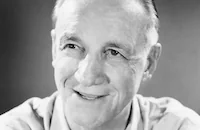
Allan Dwan
Cast

Tyrone Power

Loretta Young

Annabella

J. Edward Bromberg
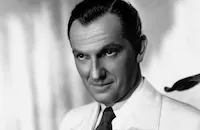
Joseph Schildkraut
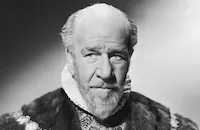
Henry Stephenson
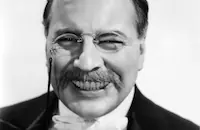
Sidney Blackmer
Maurice Moscovich

Sig Rumann
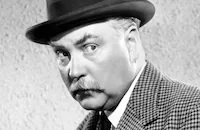
Nigel Bruce

Miles Mander

George Zucco

Leon Ames

Rafaela Ottiano
Victor Varconi
Georges Renavent
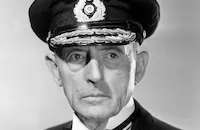
Frank Reicher
Carlos De Valdez
Jacques Lory
Albert Conti

Brandon Hurst
Marcelle Corday
Odette Myrtle
Egon Brecher
Alphonse Martell
Montague Shaw

Leonard Mudie
Jean Perry
Robert Graves
Christina Montt
Anita Pike
Louis Labey
Frank Lackteen
Albert Morin
Michael Visaroff
Louis Vincenot

Fred Malatesta
Denis D'auburn
Jerome De Nuccio
Tony Urchel
Jean De Briac
George Sorel
Jacques Vanaire
Crew
Duke Abrahams
Eddie Armand
Carl Axcelle
Slim Balch
Slim Balch
Sam Benson
Irene Beshon
Sid Bowen
Jerry Braun
Jack Breth
Otto Brower
Chris Christensen
Lee Crawford
Lucille D'antoine
Ralph Dietrich
Tom Dudley
Sam Duncan
Philip Dunne
Ed. Ebele
Charles Fremdling
Robert Fritch
Bill Gallagher
Paul Gilbert
Milt Gold
J. Goncz
John Grady
Fred Hall
Ralph Hammeras
E. H. Hansen
Roger Heman
Bernard Herzbrun
Julien Josephson
Charles King
Arthur Von Kirbach
E. J. Lavalle
George Leverett
Thomas Little
Harry Lloyd-morris
Joshua Logan
Stanley Logan
Gene Markey
Peverell Marley
V. L. Mcfadden
Barbara Mclean
Owen Mclean
Tom Morrissey
Ben Nye
Carrie O'neil
Harvey Perry
Major C. S. Ramsay-hill
Gale Roe
Aaron Rosenberg
Royer
Stanley Scheuer
John Schmitz
Fred Sersen
Chris Seymour
Tom Shaw
J. L. Sigler
Louis Silvers
Rudolph Sternad
Mert Strong
Al Thayer
The United Costumers, Inc.
Ted Wells
Jack Wendall
Walter Whaley
Louis J. Witte
Darryl F. Zanuck

Film Details
Technical Specs

Award Nominations
Best Cinematography
Best Score
Best Sound
Articles
Suez (1938) - Suez
Director: Allan Dwan
Producers: Gene Markey (associate producer); Ralph Dietrich (assistant producer, uncredited)
Screenplay: Philip Dunne and Julien Josephson (screenplay); Sam Duncan (story)
Cinematography: J. Peverell Marley (Peverell Marley)
Editor: Barbara McLean
Art Direction: Bernard Herzbrun, Rudolph Sternad
Costumes: Royer
Music: Robert Russell Bennett, Charles Maxwell, Cyril J. Mockridge, David Raksin, Ernst Toch (all uncredited) Cast: Tyrone Power (Ferdinand de Lesseps), Loretta Young (Countess Eugenie de Montijo), Annabella (Toni Pellerin), J. Edward Bromberg (Prince Said), Joseph Schildkraut (Vicomte Rene De Latour), Henry Stephenson (Count Mathieu de Lesseps), Sidney Blackmer (Marquis Du Brey), Maurice Moscovich (Mohammed Ali), Sig Rumann (Sergeant Pellerin), Nigel Bruce (Sir Malcolm Cameron), Miles Mander (Benjamin Disraeli), George Zucco (Prime Minister), Leon Ames (Napoleon III - Emperor of France), Rafaela Ottiano (Maria De Teba), Victor Varconi (Victor Hugo)
BW-104m. Closed captioning.

Suez (1938) - Suez
Quotes
By all means support this policy; by all means rally round the Prime Minister; by all means follow cheerfully and unquestioningly his leadership. All of you... who are as anxious as he to see England reduced to the standing of a third-rate power!- Benjamin Disraeli
Yes, I'm afraid you're right. Apparently the present government have temporarily averted the danger of England taking over the leadership of the world, huh?- Benjamin Disraeli
Oh, Eugenie, darling, I'm leaving for Egypt in an hour and 45 minutes. Will you marry me?- Ferdinand de Lesseps
What?- Countess Eugenie de Montijo
I'm going there as secretary to the Consulate. Marry me, come with me. Rene's going for the license.- Ferdinand de Lesseps
What license? What are you talking about?- Countess Eugenie de Montijo
The marriage license! Quick, pack your things, we've just time to get to the church.- Ferdinand de Lesseps
At your service, mademoiselle.- Ferdinand de Lesseps
Make him bring back my little house. My clothes are in it.- Toni Pellerin
Well, why don't you come out and get them yourself?- Ferdinand de Lesseps
Shame on you.- Toni Pellerin
My dear young lady, I don't mind seeing you in your bathing dress.- Ferdinand de Lesseps
Ohhh! Tch, tch, tch, tch -- shame on YOU!- Ferdinand de Lesseps
Look! A rainbow! Oh, Grandfather says there's a pot of gold at the end.- Toni Pellerin
One end in the Mediterranean and the other in the Red Sea. What a pot of gold for the world if they could be joined: the Red Sea and the Mediterranean. Look, Toni! That water in the old gulf. Just as it was centuries ago, when the Phoenicians sailed through. Can you imagine ships sailing right through here where we're standing?- Ferdinand de Lesseps
Ships?- Toni Pellerin
Yes. Not ancient galleys but modern ships, steamers, sailing a short trade route to the East. It could be done: no elevations, no rock formations, just a simple sand... ditch. (Heh heh heh. And I was told I was going to dig ditches.) There's fate in this, Toni. Something sent me here to Egypt when I didn't want to come, kept me here when I wanted to leave. I thought it was a dead end, has been up to now. But I can make this -- I can make this spot that we're standing on the crossroads of the Earth. Why, think of it, Toni, a canal stretching through to the Mediterranean, open to the ships of all nations! It could be done, and I can do it. I was looking for a way to serve France, and I think... I think I've found a way to serve the world.- Ferdinand de Lesseps
Trivia
Notes
MPPDA notes on the production in this film's file at the AMPAS Library state, "Except for the fictitious character of 'Toni' played by Annabella, and the scenes centering around her, the film story of Suez is quite faithful to historical fact." A pre-production New York Times news item stated that the studio made efforts to conform to fact. According to the article, the Twentieth Century-Fox research department sent memos to executives stating that a scene in the script, in which Ferdinand de Lesseps arises in the Chamber of Deputies to pledge that Louis Napoleon would make no attempt to seize the State, never occurred. The script was then revised to have de Lesseps make his pledge privately in a coffee house, which, though not authenticated, could, the studio presumed, have happened. Also the article noted that the prop department was building dredges duplicate in appearance to those used on the canal. The article added that certain elements of the story that would have added confusion to the plot had been dropped, such as the loss of control of the canal by France because of an English coup and the great furor caused by charges that forced labor was used on the canal. A later New York Times article noted that originally Tyrone Power was to declare that the waters would make the desert "bloom like a rose," but technical advisors informed the director that the Suez was a saltwater canal.
Contemporary reviewers and modern sources, however, comment on the film's divergence from historical fact. New York Times called the film "ponderously implausible," while Variety stated, "The fictional liberties taken...comes under acceptable Hollywood license." Variety hypothesized, "Some of the dialog seems to have deep-rooted significance as regard 1938's history in the making-'peace without honor'; England's lifeline through the Suez Canal to its far-flung Empire; Prussia vs. France, and the need of Britain's friendship to swing the tide, etc." The addition of these themes May account for some of the divergence. The need for a starring vehicle for Tyrone Power (nowhere near the age of de Lesseps, who was born in 1805), Loretta Young and rising star Annabella May also have been a factor in diverting the script from historical fact. Despite the attacks on the film's accuracy, director Allan Dwan, in a biography, is quoted as saying, "as an example of what can be done to put history on the screen...I thought it was great."
According to a Film Daily news item dated June 16, 1937, Simone Simon was originally cast for the film, presumably in the role that later went to Annabella. According to Los Angeles Examiner, production head Darryl Zanuck wanted George Arliss to play "Benjamin Disraeli," a role he created on stage and screen. Los Angeles Examiner also stated that the film cost $2,000,000 to produce. A "Film Guide" published in 1938, in the AMPAS production file on the film, gives the following production information: the All-American canal, under construction at the time to divert water from the Colorado River, near Yuma, AZ, was used in many long shots; a company of 1,000 extras, 300 horses, 200 burros and 20 camels spent 36 days near Yuma shooting long shots and background material; Otto Brower, who directed 2d unit shooting, enacted battle scenes at Lake Elsinore, CA and in old clay pits near Corona, CA, where a small mountain was dynamited for a landslide scene; two "prop deserts" were built at the studio, a small one for close-ups, on an interior sound stage, which was filled with 200 truckloads of sand and a dozen tents, and a large one, for scenes of a controlled storm, built over a twenty-acre former golf course using 3,000 truckloads of sand (a wind, however, blew most of the sand away two days after it was laid, and the studio lost $30,000); the simoon scenes, which cost $250,000, were staged with twenty-four wind machines by Lou Witte and Fred Sersen, who the previous year created the fire scenes in the studio's In Old Chicago; seven historic landmarks were recreated at the studio at a cost of $250,000, including an Alexandria, Egypt courtyard, which cost $50,000. Dwan, in his biography, is quoted as saying that ground cereal was blown by airplane propeller fans, because sand, which was tried originally, cut into the skin. He explained that in the scene where Annabella was blown away by the wind, she was attached to a wire and flown through the air.
According to information in the Twentieth Century-Fox Records of the Legal Department at the UCLA Theater Arts Library, a "Countess de Lesseps" claimed to have unpublished records and facts relative to Ferdinand de Lesseps, and the studio employed her for a week, but it soon became apparent that she had no new information. In September 1938, M. Paul de Lesseps, the son of Ferdinand and the Director of the Suez Canal, informed the U.S. Department of Commerce that in the event that the film was harmful to his father's reputation, he intended to take up the matter with his attorney. According to the legal records, Paul de Lesseps also contacted the European manager of Les Productions Fox Europa and said that he was going to bring legal action against the company because he had been working on a scenario about his father, which was not completed, and the film made by Twentieth Century-Fox destroyed any chance a film based on his work had of being produced. The manager in Europe reported that de Lesseps wanted "a fabulous sum" to settle the matter. A lawyer for de Lesseps subsequently tried to get a court to issue an injunction to stop the film's exhibition. Zanuck wrote to Sidney Kent, the studio's president, that de Lesseps' action was an "attempted hold-up" and stated, "We certainly glorified Ferdinand and if we had wanted to we could have told the part of his life about his failure to build the Panama Canal and the lawsuit which followed, in which he was accused of bribery and everything else." [According to modern sources, de Lesseps was the president of a company that worked on the construction of the Panama Canal. After he gave up the project because of financial and political difficulties, he was sentenced to imprisonment by the French government for misappropriation of funds, but the decision was reversed.] Empress Eugénie's grand-nephew, Marquis de Casa Fuerte, also instituted a court case to stop the film's exhibition, but a judge in January 1939 ruled that there was no reason to seize the film and joined the two writs to have the case tried on its merits. No further information regarding the disputation of the suits has been located. Information in the legal records states that the charge d'affaires for Egypt wrote to the studio in November 1938 to complain that the portrayal of the young Prince Said was inaccurate and liable to offend Egyptian feelings. The charge d'affaires specifically objected to the scenes of the prince at an official festivity, in which the manners and etiquette depicted "could not accord with the dignity of his high position" and the boxing training scenes between the prince and de Lesseps, of which the charge d'affaires wrote, "As this is a matter which pertains to his private life, it would have been better not to show it to the public." The charge d'affaires requested that the studio examine the possibility of deleting those scenes. The studio's legal counsel then recommended that "objectionable material" should be removed from the Egyptian release if the removal would not destroy the story value. According to a New York Times article, scenes in the film showing a donkey named "Hassan" were deemed objectionable and deleted from showings in India because Hassan, the revered grandson of the prophet Mohammed, was a martyr still mourned in India for ten days every year.
According to a Hollywood Reporter news item, Robert "Believe It or Not" Ripley was filmed in his study at his home in Long Island for the film's trailer, in which he told the story of the canal and introduced the cast. According to modern sources, Power and Annabella fell in love during the production, and he proposed to her in July 1938. They were subsequently married in April 1939. Of Young, who, modern sources state, felt she was being used in this film to help advance Power's career, Dwan commented, "Loretta was always above everything.... And she used that quality as Eugénie, of having complete control over her situation and being vastly superior to everybody. It came naturally for her to make you feel that everyone she came in contact with was far beneath her." He noted that she collaborated with the costume designer to fashion "the largest hoopskirts ever" and let her fingernails grow long to attract attention to herself. Dwan, who credited Zanuck with the idea for the film, thought it was overwritten by two reels, yet considered it one of his better films. Writer Philip Dunne in his autobiography, however, called the film "pretty bad." Suez was nominated for Academy Awards in three categories: Cinematography (Peverell Marley); Sound Recording (Edmund Hansen); and Original Score (Louis Silvers). The film's end credits contain the statement, "This is one of the movie quiz $250,000 contest pictures." No information has been located concerning this contest.

Miscellaneous Notes
Released in United States 1938
Released in United States 1938













